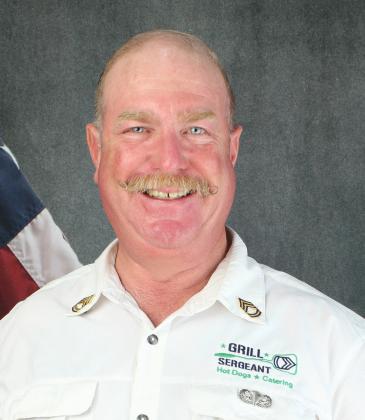Duty - Part 2
This is part two of an eight-part series based on the U.S. Army Values: Loyalty, Duty, Respect, Selfless Service, Honor, Integrity, and Personal Courage. The reader will no doubt discover that these tenets carry over into all facets of life and are not limited to military service.
The short answer to the question, “What is duty defi ned?” In short, it involves fulfilling one’s obligations. According to Wikipedia, the word comes from an old French term, “due”, meaning “that which is owed”. There is a sense of a commitment or expectation to perform some action in certain circumstances. The great Roman statesman Cicero said “No phase of life, whether public or private, can be free of duty.” To do our duty brings us the greatest happiness and to avoid it leaves us with a sense of discomfort.
There is a moral overtone here also. We as humans have an obligation to do what’s right – even if it’s not easy. In today’s society we often see many injustices, but do we do our duty and try to make things right? Sometimes yes, sometimes no. It’s a quandary we all face, but if our moral compasses point us in the right direction, we should be able to make the right choices – even if it costs us something.
Duty also is synonymous with responsibility. We are each responsible for our actions, accomplishments, and even failures. In leadership positions these responsibilities are multiplied many times over. It takes everyone on the team doing their part and making good decisions to get the job done, especially if it is uncomfortable or even dangerous. A good team has a cohesiveness that stems from this inner discipline of looking out for one another, working together towards a common goal, reaching it, and going on to the next challenge. All of this comes from everyone doing their duty to the height of their abilities.
Another scenario where duty is absolutely key is within the family. Parents are responsible for their children and children are responsible for their actions in the home. Kids often have jobs to do and as they get older these jobs increase in responsibility. This family-oriented sense of duty is the framework of society in many cultures. Parents never stop parenting, setting the standards of behavior, or enforcing their expectations for their children. Even adult children still find an obligation to honor their parents, especially in times of need.
There is something to be said about a duty-based person. This individual has structure, guidance, an ethical grounding, and respect for leadership. These are people of integrity and have earned the right to be trusted. Our leaders from the local level all the way up to the national level should be duty- based individuals. This is not always the case, but in an ideal world it would be the norm and not the exception. Duty-based people are those who can not only lead but inspire. They are looked up to and admired and the world needs more people like this if we are to meet the challenges in the world today.
Doing what’s right – that’s what this all comes down to. It isn’t always easy, it isn’t always cheap, but it is always right. That nagging inner voice that tells us to do our duty, to go the extra mile, to love our neighbors is what keeps us going. And if we keep going, we can all keep growing into the person or persons that we are meant to be. Do your duty – to God and country – you’ll be glad you did.
The column represents the thoughts and opinions of Alan Shoalmire. Opinion columns are NOT the opinion of the Navasota Examiner.
Alan Shoalmire is a resident in Grimes County and the owner of Grill Sergeant Hotdogs and submits a column to the Navasota Examiner every other week.




